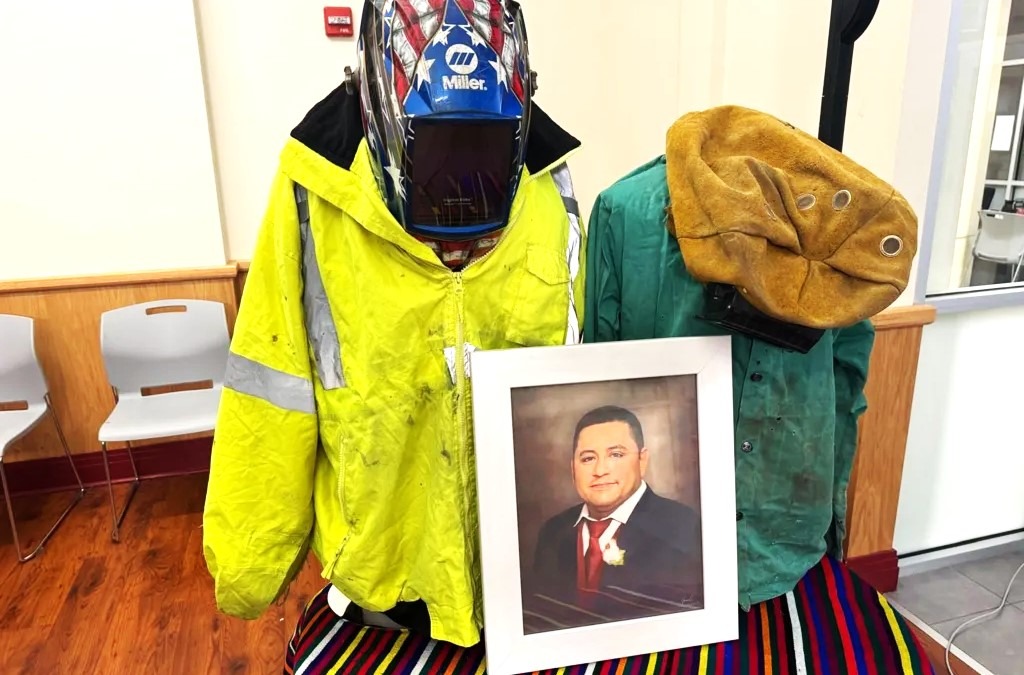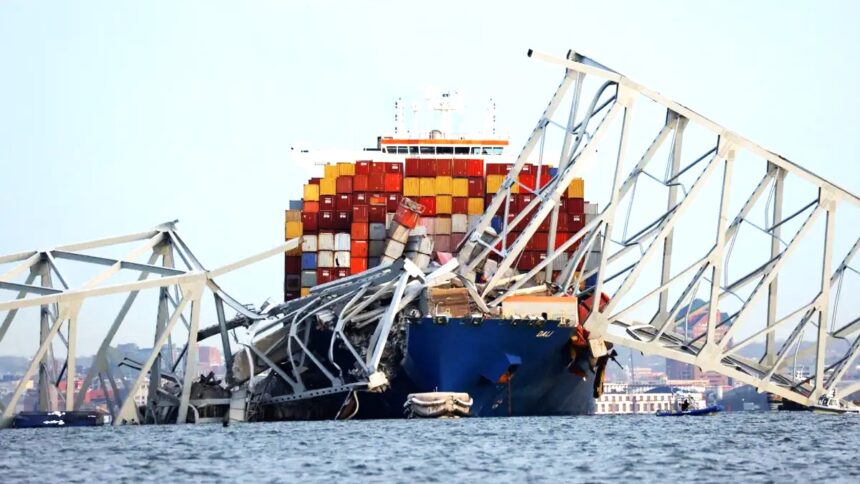On the Francis Scott Key Bridge, a Tragic Event
On March 26, 2023, tragedy struck when the Francis Scott Key Bridge in Baltimore collapsed after being struck by the cargo ship M/V Dali. Among the eight construction workers repairing potholes on the bridge was 49-year-old Miguel Angel Luna Gonzalez. As the sun rose that fateful morning, his wife, Maria del Carmen Castellón, received the heart-wrenching news that he was missing in the cold waters of the Patapsco River.
“My door was knocked on by my husband’s son.” Castellón thought back. “It’s news I wouldn’t wish on any wife. At that moment, I wished I had wings so I could fly and save him.” Tragically, six of the workers, all immigrants from Latin America, lost their lives in the disaster. Luna’s body was recovered five weeks later, leaving his family to navigate their grief.
Legal Action: Seeking Justice
Now, six months after the disaster, the families of three of the deceased workers, including Luna, are taking legal action against the shipping company, Grace Ocean Private Limited. They argue that the company’s negligence directly contributed to the bridge’s collapse and the subsequent loss of life.
“We’re fighting for justice,” Castellón stated in Spanish during a press conference at the Baltimore offices of Casa, an immigrant advocacy organization. “Justice means preventing future tragedies.” The ongoing investigation by the National Transportation Safety Board (NTSB) has already revealed concerning details about the Dali’s operational status leading up to the accident.

Preliminary Findings from Investigations
According to a preliminary report from the NTSB, the Dali lost electrical power four times within 12 hours before colliding with the bridge. Matthew Wessler, the lawyer representing the families, emphasized that these repeated power losses should have prompted the crew to address any underlying issues immediately.
Grace Ocean has attempted to limit its legal liability in federal court, stating that the families’ claims were anticipated but declining to comment further on the specifics. The company is facing multiple lawsuits, including claims from the city of Baltimore and local business owners, asserting that the Dali was unseaworthy at the time of the incident.
Memories and Dreams Shattered
Castellón-Luna described her husband as her best friend and companion. Just the day before the accident, they had toured a rental property, dreaming of opening a restaurant together. Their food truck had already garnered a loyal following, serving traditional Salvadoran dishes. “We were determined to have a better future for ourselves,” Castellón-Luna said, her voice breaking. “I lost him that morning, shattering those dreams.”
The night he left for work, Luna had penned a heartfelt letter, ending it with “I love you.” “I carry that in my heart now,” Castellón-Luna said, vowing to honor his memory by pursuing their shared dream of opening a restaurant.
Advocating for Safer Working Conditions
As Castellón-Luna seeks justice for her family, she also aims to advocate for safer working conditions, particularly for immigrant workers who often face dangerous job environments. She pointed out the holes made by flying sparks while holding up her husband’s old welding clothes. She remarked, “We hope that no one else has to go through this tragedy like we have.”
Federal Government Takes Action
In a significant development, the U.S. Justice Department filed a lawsuit seeking over $100 million from Grace Ocean and its parent company, Synergy Marine Private Limited. This civil lawsuit alleges that the companies sent an ill-prepared crew aboard an unseaworthy vessel, putting lives and infrastructure at risk for the sake of profit.
The suit aims to cover the government’s expenses related to the disaster response and the clearing of approximately 50,000 tons of wreckage from the shipping channel. Attorney General Merrick Garland underscored the dedication to holding those accountable, asserting, “The American taxpayer must not bear the costs of clearing the channel and reopening the Port of Baltimore; they must be borne by the companies that caused the crash.”
Almost six months after the cargo ship Dali crashed into the Francis Scott Key Bridge, the families of three of the six construction workers who died in the collapse announced plans Tuesday to pursue legal action against the ship company. https://t.co/NhzhiEiMZZ pic.twitter.com/KG6hXOt1Ie
— Kaitlin Newman (@KaitlinObscura) September 17, 2024A Call for Accountability
The lawsuit filed by the Justice Department explained how malfunctions on board the Dali caused the collision. It criticized the companies for not reporting known issues with the ship, which had lost power the day before the disaster without appropriate notification to the Coast Guard. The suit claims that crucial safety features had been disabled, leading to the catastrophic loss of power just moments before the crash.
“The tragedy was entirely avoidable,” federal prosecutors stated, highlighting that a lack of adequate maintenance and oversight directly contributed to the incident.
Moving Forward
Castellón-Luna is steadfast in her resolve to follow her dream of creating a restaurant and pay tribute to her husband’s heritage despite the legal disputes. She expressed her hope that by fighting for justice, she would be able to stop tragedies similar to this one in the future.”I know he is up there watching down on me, celebrating all of the victories with me,” she continued.
The Baltimore bridge disaster has raised critical questions about safety regulations and the treatment of immigrant workers in hazardous jobs. As families seek justice, the spotlight remains on the need for stricter accountability measures to protect lives and prevent future incidents.
In the face of profound loss, the call for justice resonates, underscoring the importance of safety in the workplace and the rights of all workers, especially those who often go unseen.
Read More : Transforming the US Housing Market: Can Fed Rate Cuts Solve the Affordability Crisis?






